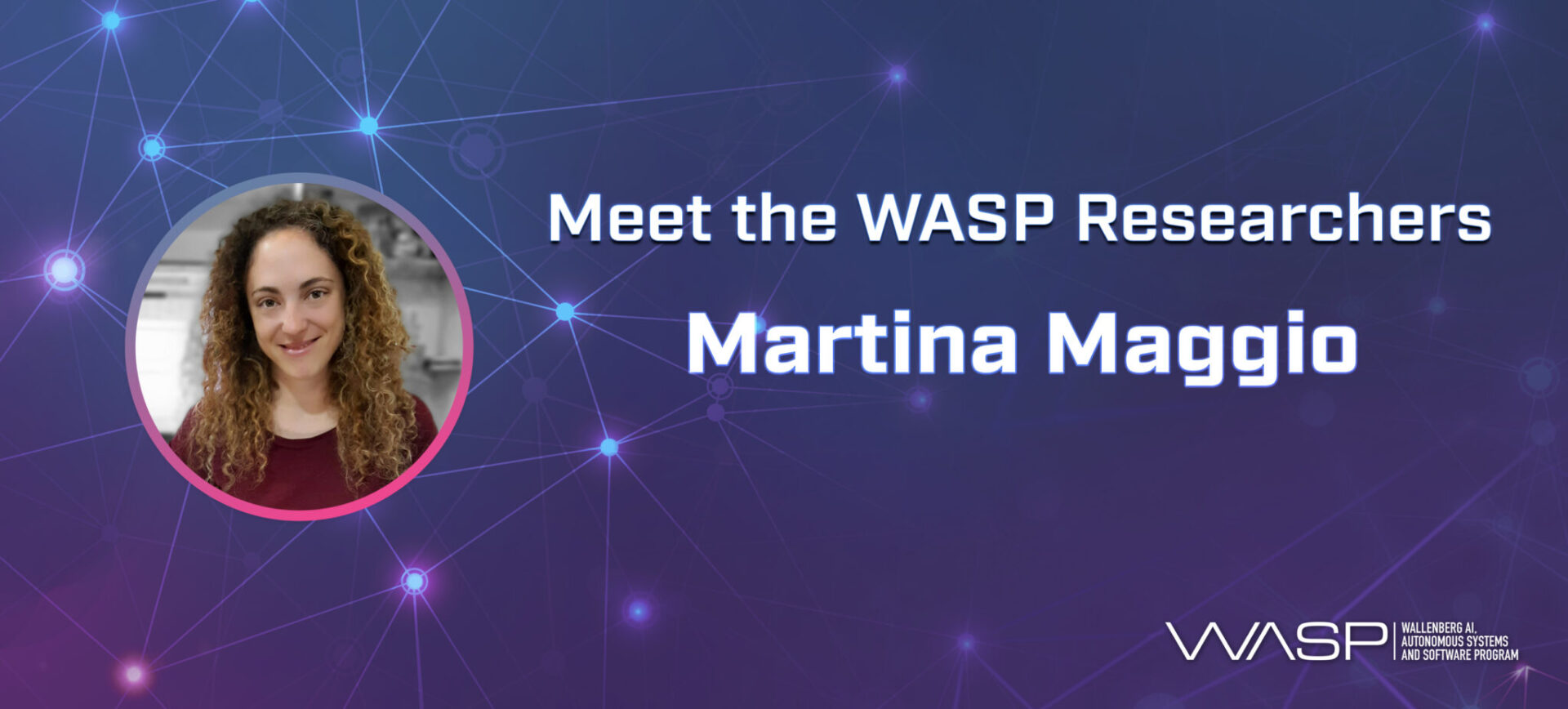WASP is very proud to have so many excellent researchers involved in the program. More than 450 researchers, reaching from assistant to senior professors, are affiliated with WASP. Some are international recruitments who have come to Sweden to join the WASP community, others are already well established in the Swedish academic system.
Through a series of portraits, you get the opportunity to get to know them a little bit better
Meet Martina Maggio
Martina Maggio is a Professor at the Computer Science Department, Saarland University, and an Associate Professor at the Department of Automatic Control, Lund University. Professor Maggio joined WASP in 2015.
What is your position/role in WASP?
Academic Supervisor.
Why did you choose to join WASP?
Because of interesting research at the boundary between automatic control and software engineering.
What are the benefits you see in WASP?
Networking opportunities and funding opportunities (for topics that maybe are less mainstream and would not get funded otherwise).
Briefly describe your research topic.
I conduct research at the intersection between control engineering and software. In particular I have recently been working on:
(i) testing of the implementation of control systems,
(ii) verification that the implementation of a controller can tolerate a number of faults.
The two topics are very interconnected as better testing allows one to find faults and correct bugs in the implementation of controllers. However, the bugs may also arise from the environment and from unexpected interaction between different computing components (e.g., a controller and a diagnostic system that share data and hence are subject to execution delays due to locking protocols, or security attacks). Hence it is important to also find techniques that can guarantee that the controller is robust to the presence of computational problems.
In what way can your research be of importance to our society in the future?
The verification of systems that are subject to computational problems allows us to not change a component unless it is completely detrimental for the system behaviour. This favours reuse and avoid wasting resources, which is important to reduce our consumption footprint.
For more information about Professor Maggio, see https://www.martinamaggio.com/main/
Published: December 1st, 2022
[addtoany]


